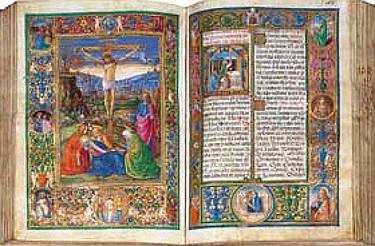
Her er et lite eksempel som viser at feil som er kommet inn i liturgien, kan være veldig vanskelig å få bort; ble Kristi blod utgydt «for mange» eller «for alle»? På latin står det tydelig «pro multis», så mange skulle tro at spørsmålet var svært enkelt. På norsk sier også presten alltid «for de mange», og jeg har aldri noen gang hørt fra noen at dette skulle være problematisk eller upassende.
Men på mange andre språk har man i 40 år sagt «for alle», en ideologisk bestemt oversettelse, spør du meg. Den nye engelske oversettelsen sier «for many», men det lykkes ikke å få dette på plass i diskunonen blant biskopene før paven personlig grep inn. Og som Sandro Magister skriver i artikkelen jeg her referer til; de italienske biskopen velger fortsatt å være udlydige:
… the change (in the English translation of the mass) that has prompted the greatest dispute is certainly the one that concerns the words of the consecration of the wine, where it says in the Latin version:Hic est enim calix sanguinis mei […] qui pro vobis et pro multis effundetur.» The «pro multis» of this formula has generally been translated, in the vernacular translations of the postcouncil, as «for all»: a translation that not only does not respect the letter of the original Latin, which in turn is derived from the Gospel texts, but has also generated a subtle but lively theological debate.
In order to resolve this problem, in October of 2006 the presidents of the episcopal conferences all over the world were sent a letter, under the «guidance» of Benedict XVI, from the congregation for divine worship, headed at the time by Cardinal Francis Arinze. It asked that «pro multis» be translated as «for many.» This was done by the episcopates of Hungary (from «mindenkiért» to «sokakért) and of various countries in Latin America (from «por todos» to «por muchos»). The Spanish episcopate is preparing to do so, and the change has already been made, not without very lively discussions even among the bishops, by the episcopate of the United States (from «for all» to «for many»). As for the episcopates of Germany and Austria, they are showing strong resistance to the change from fur alle» to «fur viele.»
As for Italy, the issue was addressed by the bishops during the plenary assembly of the episcopal conference held in Assisi in November of 2010, during the examination of the material of the third Italian edition of the Roman Missal. … … when the bishops of all of Italy were called to vote on this specific point of the Missal, the result was the following: out of 187 voters, in addition to one blank ballot, there were 171 votes in favor of keeping «per tutti,» …

«Her er et lite eksempel som viser at feil som er kommet inn i liturgien, kan være veldig vanskelig å få bort; ble Kristi blod utgydt “for mange” eller “for alle”? På latin står det tydelig “pro multis”, så mange skulle tro at spørsmålet var svært enkelt. »
Ja det burde det jo, likevel så jeg etter hva som står i evangelientekstene. Matteus og Markus sier begge i konkordant oversettelse,- for mange -, gresk tekst «peri pollon.» Det er unektelig en vesentlig forskjell mellom «for de mange» og for «alle.»